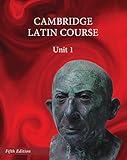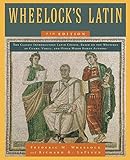Top Ten Resources for Learning Latin
Whether you are a beginner or somewhat familiar in the Latin language, and craving for some resources, here are some very good resources I would recommend provided in this list, from textbooks/books, youtube channels, websites, or anything useful and necessary for learning the Latin language.
Not only this will immerse you in the Latin language, but also tells stories as well. Similar to LLPSI (Lingua Latina Per Se Illustrata), these series of books starts as easy and gradually gets harder the more you know, it also covers good explanations on grammar and such. It appeals more to high school students and teachers. Otherwise, the pictures illustrated on this course do really well.
This website provides free texts (such as Cicero, Caesar, etc.) covering both Latin and Greek, and fits best for those who are slightly more familiar in the Latin language. Especially if you want a historical approach or how some of the famous authors write in Latin, this resource is a great essential which contains plentiful of those, and provides detailed information and notes for vocabulary and grammar.
Visit WebsiteOut from LLPSI, Wheelock's Latin, and Cambridge Latin Course, this is another good book that has a great method of immersing yourself in the Latin language and the metamorphoses. It's pretty underrated and like LLPSI, gives a natural feel that you're learning the language.
This is small, yet helpful website which explains an introductory of how the Latin language works. However, the words are quite limited so it's not recommended to use it as a literal dictionary (just stick to wiktionary or other dictionaries instead). Otherwise, this website provides a good guide and explanation of the grammar and the basics.

Duolingo is also a useful tool for beginners who want to learn Latin, and the courses are short and sweet. But if you're seriously immersed in the language, I don't recommend using it as only a primary form of learning Latin. Therefore, it's best to use it as a supplementary.

Or Lingva Latina Per Se Ilustrata (in respect on the classical Latin since it excludes "J", "U" and "W" on the alphabet. In Latin, the letter V is both a vowel and consonant.) This would be the best book especially for beginners since it's written 100% in Latin, which has no English translations although some guidance such as pictures, allowing you to understand words by context. It starts off as easy at first, but gradually becomes harder the more chapters you read. This book will best flourish your Latin vocabulary naturally without having the need to think or translate in English.

This is another good book for those who have little to no prior history of learning Latin. This book provides a good introductory to the grammar as well as vocabulary. For beginners who want a more grammatical approach, this book is for you.
This is what I used. It's really good!
If you're struggling with some of the Latin textbooks, this is a youtube channel dedicated to how grammar works in Latin. There is also a website associated with this youtube channel and most importantly, there is a quiz where you can also test your vocabulary
For both beginners and advanced Latin learners, this is another youtube channel that covers not only pronunciation and reading comprehension in most of the LLPSI chapters for free, but as well covers popular Disney songs translated in Latin, and other essential Latin videos. Especially if you also prefer to hone pronunciations or even speak fluently in Latin, this channel is a very helpful one to check out. I strongly recommend checking out his LLPSI playlist first, assuming you are a beginner of the language.
This is the Latin version of Wikipedia. Especially for intermediates, this is a nice website to glance on which consists of over 100,000 pages (most of which are short and informative). Although, a select few of the articles written are quite rusty (I've stumbled on pages on which the language feels a bit off), but generally, it's a great alternative if you want to grasp some of the vocabulary there.
A vast collection of latin texts, poems, and other prose from ancient authors. Useful for intermediate to advanced learners. Also provides a guide list for grammar and vocabulary regarding LLPSI
A greek/latin dictionary website that searches for words from other sources and provides info about words including frequency and collocations (words that co-occur together in sentences), and examples in conventional prose.

A latin dictionary containing modern everyday words and other terms that were not from the medieval or classical ages.